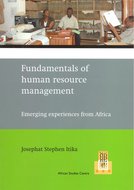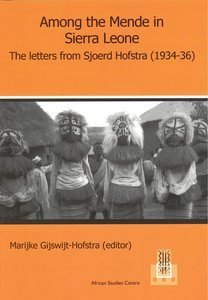Large Archive Of Hannah Arendt’s Papers Digitized By The Library Of Congress: Read Her Lectures, Drafts Of Articles, Notes & Correspondence
Many people read the German-Jewish political philosopher and journalist Hannah Arendt as something of an oracle, a secular prophet whose most famous works—her essay on the trial of Adolf Eichmann and her 1951 Origins of Totalitarianism—contain secrets about our own times of high nationalist fervor. And indeed they may, but we should also keep in mind that Arendt’s insights into the horrors of Nazism did not emerge until after the war.
Arendt did not identify as Jewish during the Nazi’s rise to power, but as a fully assimilated German; she had a romantic relationship with her professor Martin Heidegger, who became a doctrinaire Nazi, and she seemed to have little understanding of German antisemitism during the thirties and forties. Arendt, many have alleged, sometimes seemed too close to her subject.
The archives: http://www.openculture.com/2014/02/hannah-arendt-archives.html
Josephat Stephen Itika ~ Fundamentals Of Human Resource Management: Emerging Experiences From Africa
 ‘Leaders must be guided by rules which lead to success.’ (Machiavelli: The Prince)
‘Leaders must be guided by rules which lead to success.’ (Machiavelli: The Prince)
Foreword
For over half a century now, most African people south of the Sahara are still living under political, social and economic hardships, which cannot be compared with the rest of the world. For many, the expectations of independence have remained a dream. This state of affairs has many explanations but it is fundamentally based on the nature of African countries and organisations on one hand, and on the other hand there is over reliance on Eurocentric philosophies, theories, and assumptions on how administrators and managers should manage African countries, organisations, and people in such a way that will lead to prosperity. As a result, the same Eurocentric mindsets are used to develop solutions for African leaders and managers through knowledge codification and dissemination in the form of textbooks and the curricula in education systems.
Evidence from economies in South East Asian countries suggests that the success behind these countries is largely explained by high investment in human capital and, to some extent, avoiding wholesale reliance on the importing of northern concepts, values and ways of managing people; that is, the development of human resources capable of demonstrating management in setting and pursuing national, sector wide, and corporate vision, strategies, and commitment to a common cause within the context of their own countries and organisations. Similarly, African managers and leaders effectively cannot manage by merely importing Eurocentric knowledge without critical reflection, sorting and adaptation to suit the context they work in and with cautious understanding of the implications of globalisation in their day-to-day management practices. They have to understand and carefully interpret northern concepts and embedded assumptions, internalise and develop the best strategies and techniques for using them to address management problems in their organisations and countries, which are, by and large, Afrocentric.
Therefore, like Machiavelli, human resource managers, like leaders, must be guided by rules which lead to the success of their countries and organisations. The main challenge facing human resource managers now is to know which rules are necessary and when applied would lead to effective human resource management results in different types of public and private sector organisations and contexts. This is a difficult question to answer. However, we can start by learning one small step at a time from the emerging experiences of our own practices of human resource management in Africa and elsewhere.
This book on ‘Fundamentals of human resource management: Emerging Experiences from African Countries’ has just made a small step in the journey of establishing a link between Eurocentric concepts, philosophies, values, theories, principles and techniques in human resource management and understanding of what is happening in African organisations. This will form part of the groundwork of unpacking what works and what does not work well in African organisational contexts and shed more light on emerging synergistic lessons for the future. The book has fourteen chapters each addressing important issues in human resource management in terms of the Eurocentric approach and reflecting on what is happening in African governments and organisations at the end of each chapter.
Read more
Marijke Gijswijt‐Hofstra (Ed.& transl.) ~ Among The Mende In Sierra Leone: The Letters From Sjoerd Hofstra (1934-36)
 This book offers a unique look behind the scenes of anthropological fieldwork amongst the Mende in Sierra Leone in the mid-1930s. The Dutch anthropologist and sociologist Sjoerd Hofstra (1898-1983), Rockefeller research fellow of the International Institute of African Languages and Cultures and one of Bronislaw Malinowski’s three ‘Mandarins’ (as were also Meyer Fortes and S. Frederick Nadel), reports in long, bi-weekly letters to his adoptive mother about his experiences with the Mende. During his first stay in Sierra Leone (January 1934 – March 1935), Hofstra got blackwater fever, a complication of malaria tropica. His second stay (May – September 1936) came to an untimely end because he again developed symptoms of blackwater fever and was advised to return to Europe. Because of this his fieldwork remained unfinished, and Hofstra never got round to publishing the planned book on the Mende. However, Hofstra published four articles on the Mende in English, photocopies of which are included in this book. Next to these articles Hofstra’s letters to his adoptive mother contain valuable first-hand information about his fieldwork. His daughter, cultural and social historian Marijke Gijswijt-Hofstra, has edited and translated these letters, while also including contextual information.
This book offers a unique look behind the scenes of anthropological fieldwork amongst the Mende in Sierra Leone in the mid-1930s. The Dutch anthropologist and sociologist Sjoerd Hofstra (1898-1983), Rockefeller research fellow of the International Institute of African Languages and Cultures and one of Bronislaw Malinowski’s three ‘Mandarins’ (as were also Meyer Fortes and S. Frederick Nadel), reports in long, bi-weekly letters to his adoptive mother about his experiences with the Mende. During his first stay in Sierra Leone (January 1934 – March 1935), Hofstra got blackwater fever, a complication of malaria tropica. His second stay (May – September 1936) came to an untimely end because he again developed symptoms of blackwater fever and was advised to return to Europe. Because of this his fieldwork remained unfinished, and Hofstra never got round to publishing the planned book on the Mende. However, Hofstra published four articles on the Mende in English, photocopies of which are included in this book. Next to these articles Hofstra’s letters to his adoptive mother contain valuable first-hand information about his fieldwork. His daughter, cultural and social historian Marijke Gijswijt-Hofstra, has edited and translated these letters, while also including contextual information.
ASC Occasional Publication 19 – ISBN: 978‐90‐5448‐138‐6 – 2014
Download book (PDF): https://openaccess.leidenuniv.nl/handle/1887/24890
- Page 4 of 4
- previous page
- 1
- 2
- 3
- 4


